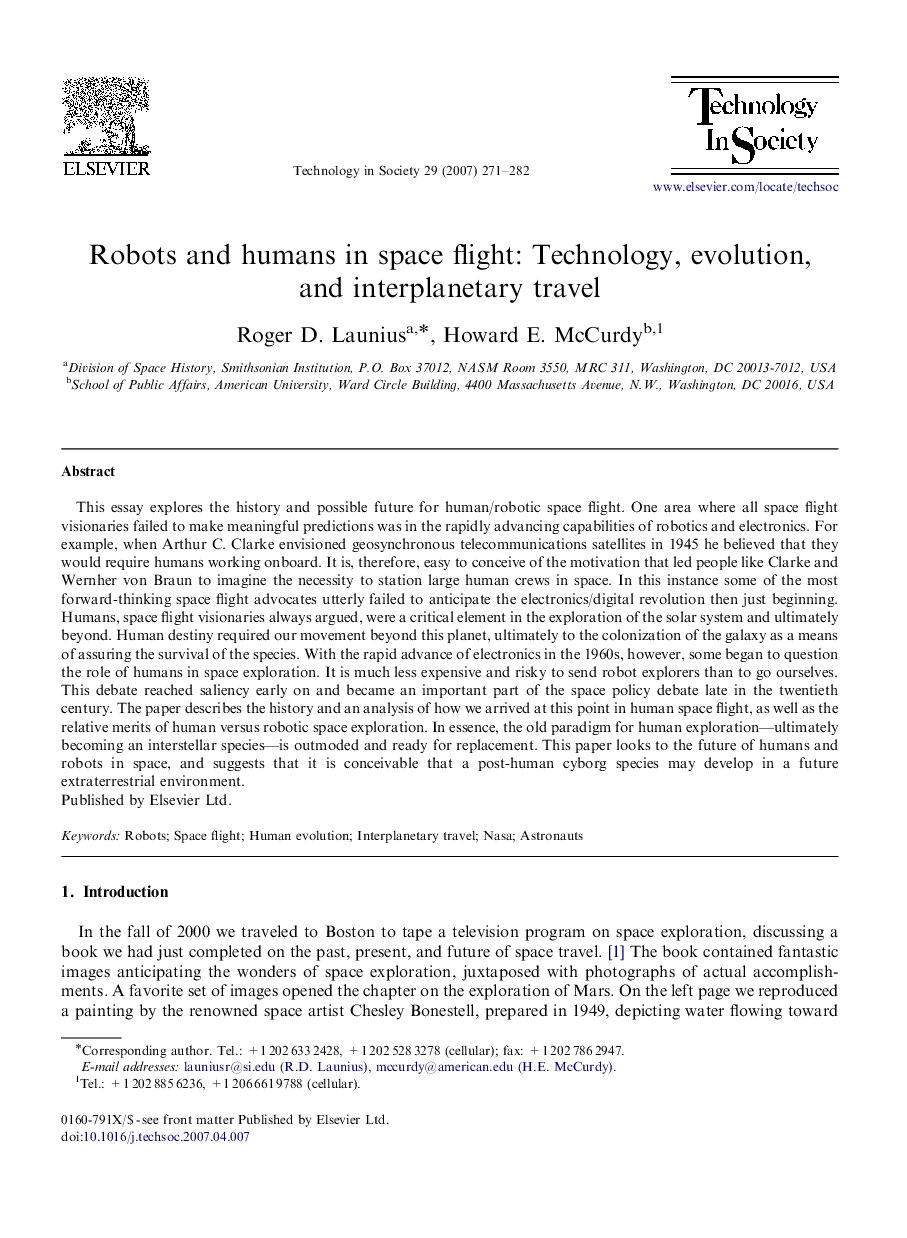| Article ID | Journal | Published Year | Pages | File Type |
|---|---|---|---|---|
| 375419 | Technology in Society | 2007 | 12 Pages |
This essay explores the history and possible future for human/robotic space flight. One area where all space flight visionaries failed to make meaningful predictions was in the rapidly advancing capabilities of robotics and electronics. For example, when Arthur C. Clarke envisioned geosynchronous telecommunications satellites in 1945 he believed that they would require humans working onboard. It is, therefore, easy to conceive of the motivation that led people like Clarke and Wernher von Braun to imagine the necessity to station large human crews in space. In this instance some of the most forward-thinking space flight advocates utterly failed to anticipate the electronics/digital revolution then just beginning. Humans, space flight visionaries always argued, were a critical element in the exploration of the solar system and ultimately beyond. Human destiny required our movement beyond this planet, ultimately to the colonization of the galaxy as a means of assuring the survival of the species. With the rapid advance of electronics in the 1960s, however, some began to question the role of humans in space exploration. It is much less expensive and risky to send robot explorers than to go ourselves. This debate reached saliency early on and became an important part of the space policy debate late in the twentieth century. The paper describes the history and an analysis of how we arrived at this point in human space flight, as well as the relative merits of human versus robotic space exploration. In essence, the old paradigm for human exploration—ultimately becoming an interstellar species—is outmoded and ready for replacement. This paper looks to the future of humans and robots in space, and suggests that it is conceivable that a post-human cyborg species may develop in a future extraterrestrial environment.
